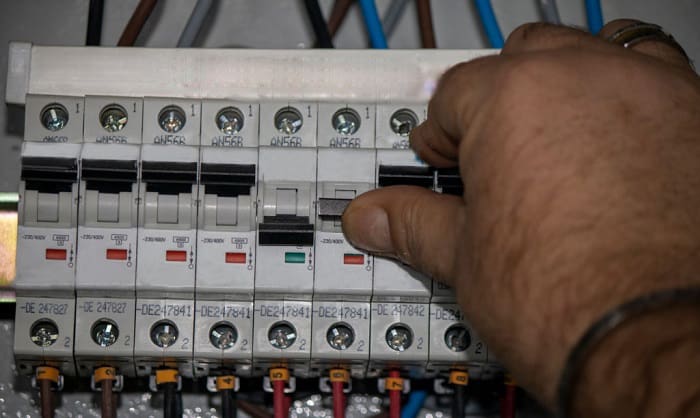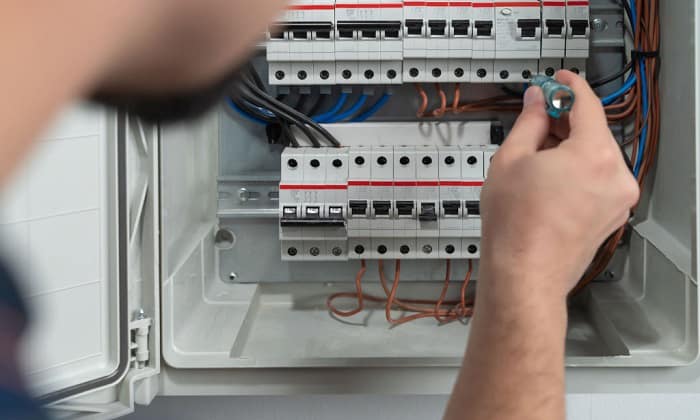Are you planning to use a 15A breaker but are unaware of its capacity? It can handle lights and other electrical devices simultaneously, but of course, it needs to comply with the breaker perimeter. Manufacturers label appliances in either amperes or watts.
To set a proper limit, you’ll need to know how many watts on a 15 amp breaker are possible. With simple math, you can answer this question. Multiply the breaker ampere by your circuit’s voltage, and voila, you get your maximum wattage. However, there are still prohibitions you need to follow regardless of the breaker’s watt size.
Table of Contents
Calculate Your Wattage
To convert 15 amps to watts, we’ll need to apply Ohm’s Law with the equation \begin{equation}
\text{Amperage (A)} \times \text{Volts (V)} = \text{Watts (W)}
\end{equation}
You’ll need to understand the difference between these three electrical units.
Amperes or amps measure how much current flows per second through the circuits. Volts, on the other hand, calculate how much potential/force the electrons are subject to. And watts are a product of amps and volts, or the total electrical energy.
Bring out a pen and paper because you can determine how many watts can a 15 amp breaker handle with a simple conversion. For example, a 15-amp breaker pairs with a 120-volt circuit. Using the above formula, we have:
\begin{equation}
15 \text{ amps} \times 120 \text{ volts} = 1800 \text{ watts}
\end{equation}
What Are the Prohibitions
Now, you may think you’ve figured that one out quickly. However, you can’t just install as many lights or devices as you want, maxing out the load. Considering the National Electric Code (NEC) regulations, you should always give free space for the startups of other devices.
This regulation is called the maximum continuous load, which is 80% of the total wattage computed. Get the 80% of 1800 watts: 1800W x 0.8 = 1440W. So, the total watts on a 15 amp circuit is 1440. Do not attempt to exceed that load limit.
For example, I want to put incandescent lights consuming 65 watts on a 15-amp circuit. The best and safest thing I can do is to install only 22 light fixtures (1440W ÷ 65W = 22.15/ 22 lights).
A 15A breaker is pretty common for a modern home. The risk of overloading is avoidable, so try to measure the load demands of other devices before connecting them to your circuit.
Conclusion
Small-sized circuit breakers like the 15-amps you have are worth it if you install devices appropriately within their limit. Before you plug electronics on your circuit, learn first how many watts on a 15 amp breaker are okay.
Do this by multiplying the breaker’s amperage (15A) by its volts. Exceeding the maximum watts will surely trip the breaker, so you should try never to reach that point. Make sure to consider the maximum continuous load and consume only 80% of the breaker’s maximum capacity.
Read next:

I am Edwin Jones, in charge of designing content for Galvinpower. I aspire to use my experiences in marketing to create reliable and necessary information to help our readers. It has been fun to work with Andrew and apply his incredible knowledge to our content.



